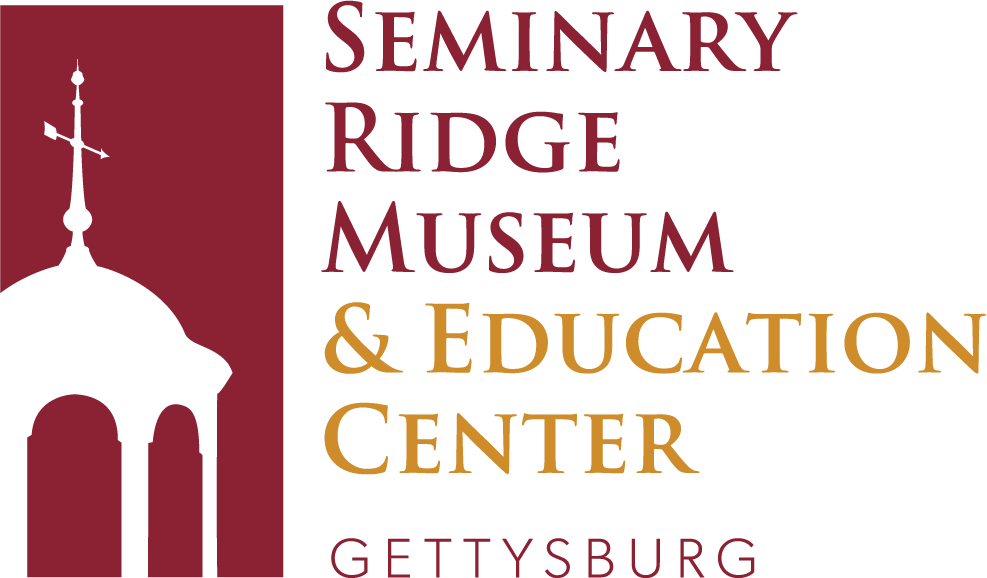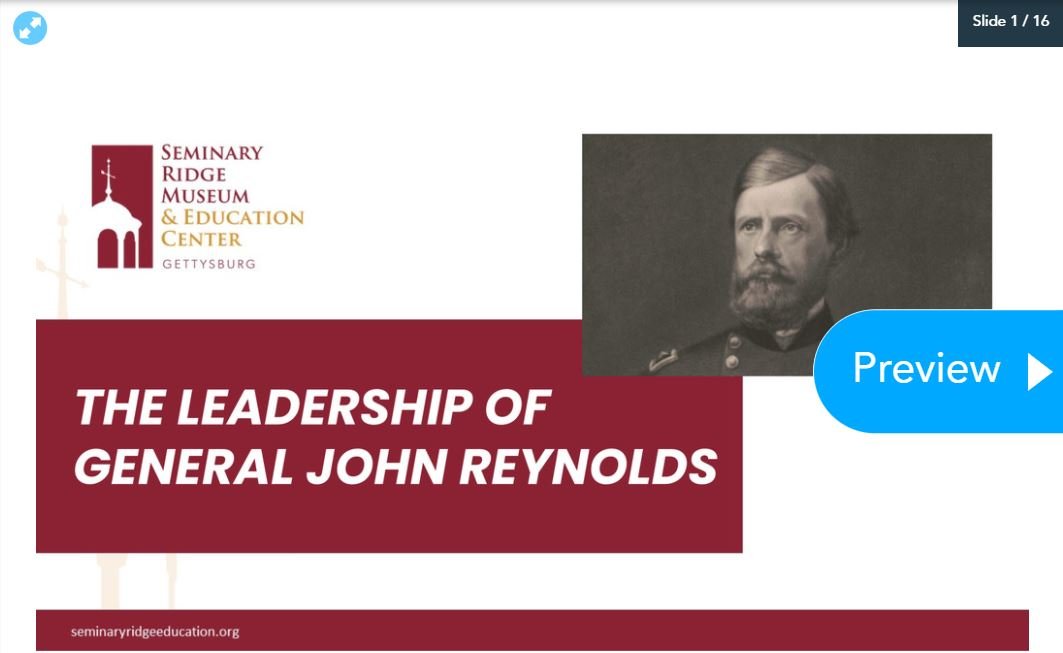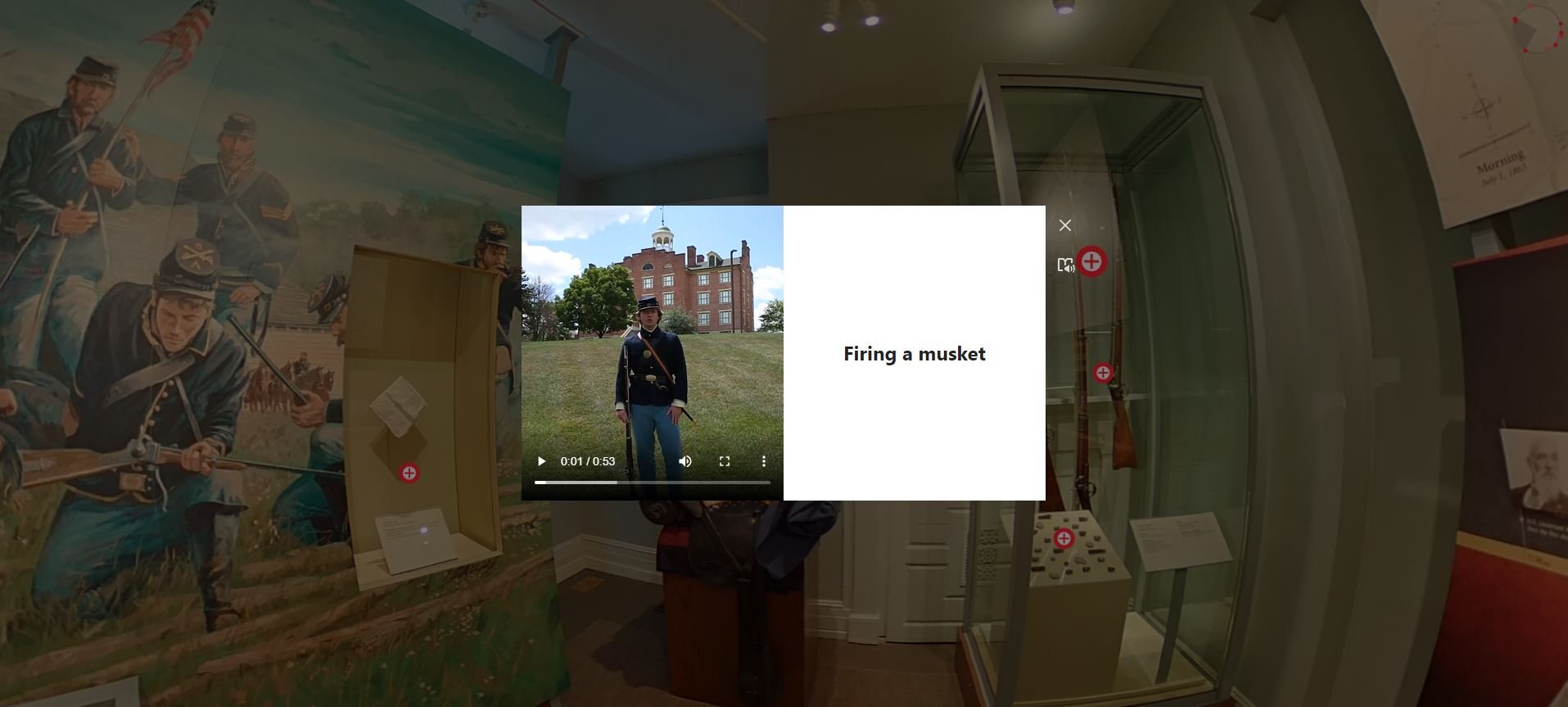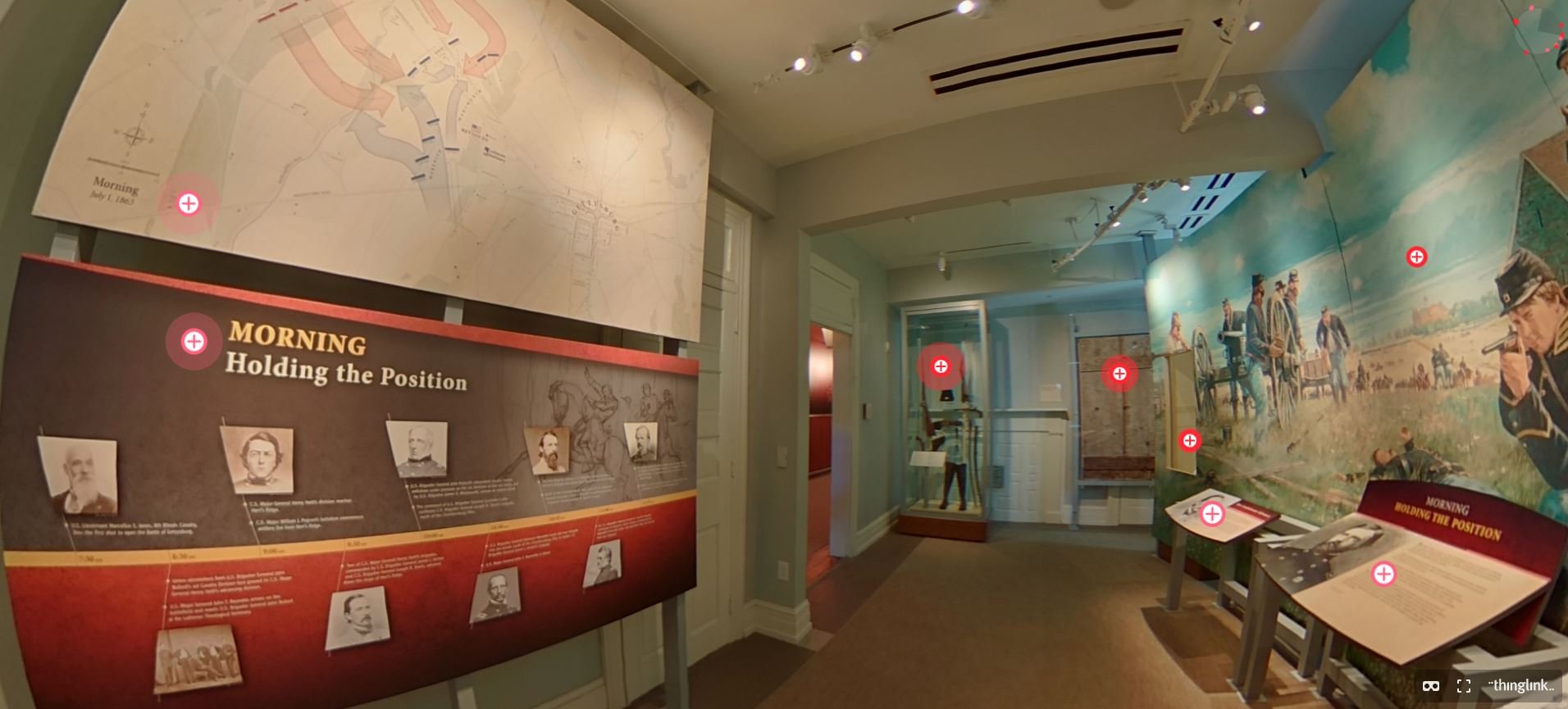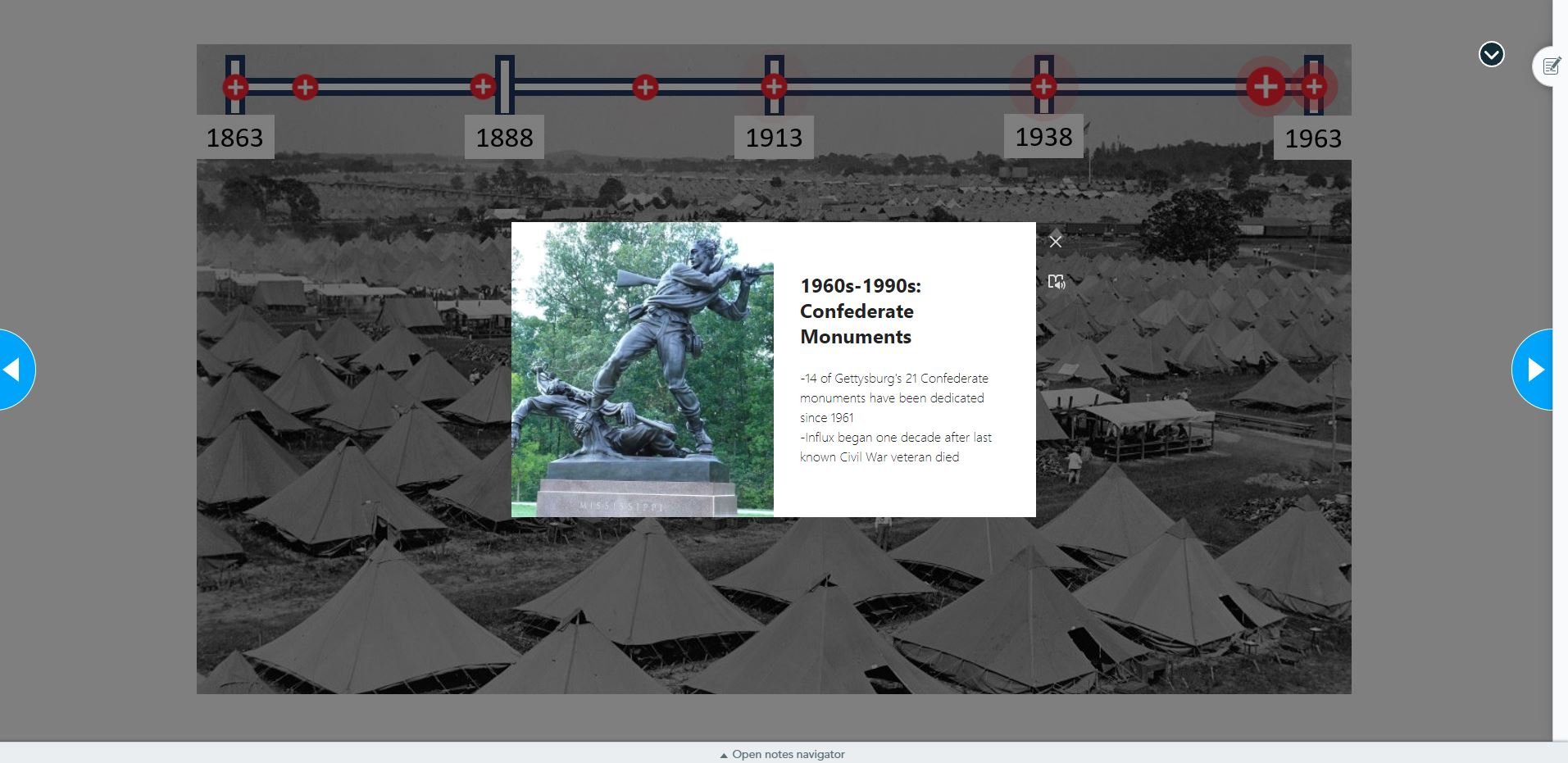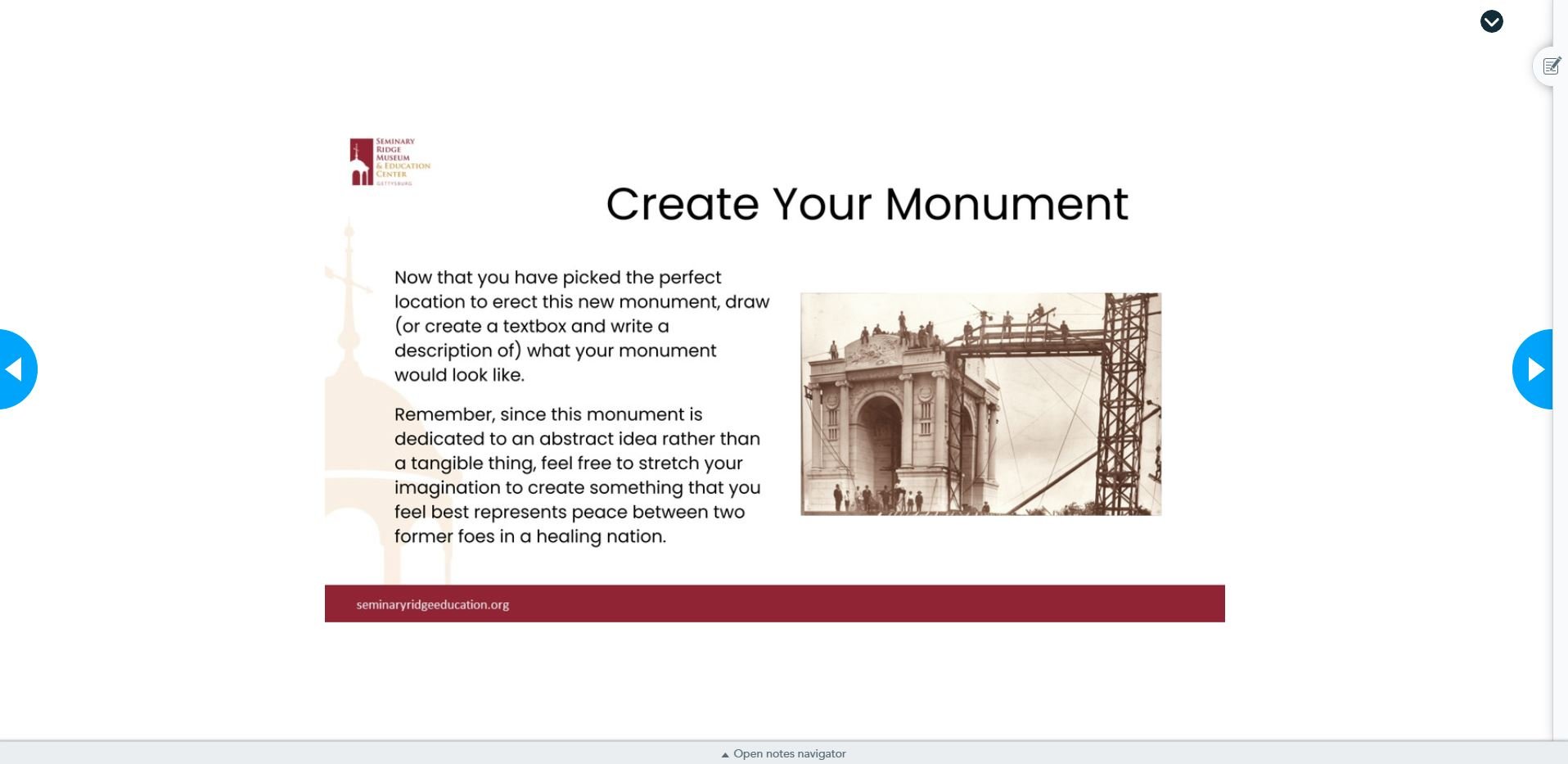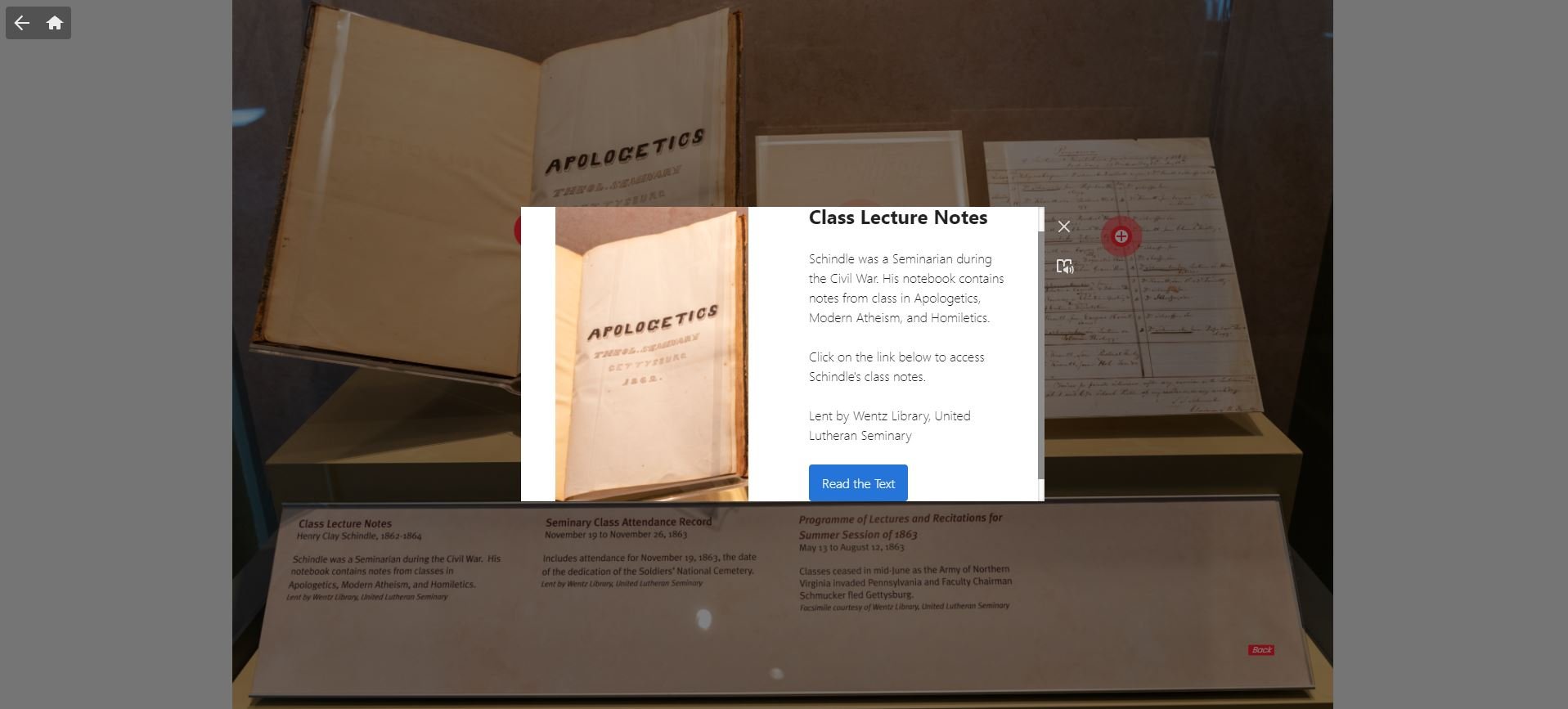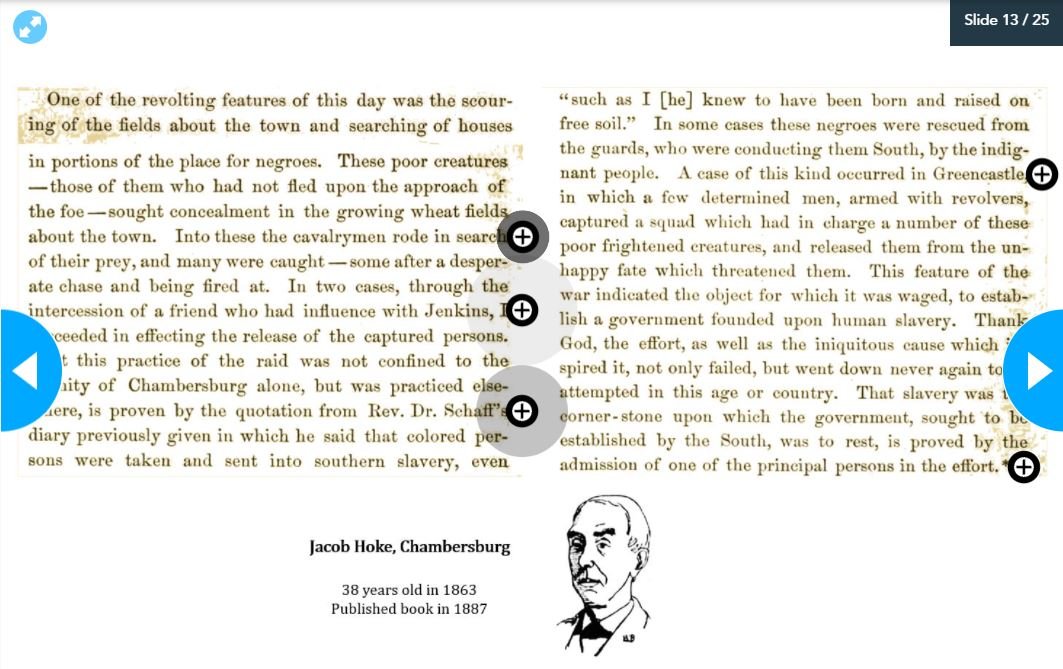Dive into Membership with Fresh Fall Content
To accompany the launch of our new Education website and Educator Membership program, we have added to our selection of digital content, including four virtual tour modules, two interactive student-paced programs, and an interpersonal remote learning opportunity called “Reunion and Reconciliation at Gettysburg.”
Included in our fresh materials are four new Virtual Museum Experiences, featuring two rooms each on the fourth and second floors of our physical exhibit galleries that have been recreated digitally. “Morning: July 1, 1863” and “Nightfall: July 1, 1863” highlight the opening and closing hours of the first day of the Battle of Gettysburg. “Questions of Faith” and “The Seminarians” allow students to explore 19th-century Dilemma Discussions that impacted Americans as a whole, as well as those who lived and worked at Gettysburg’s Lutheran Seminary in particular.
We are also introducing two new Nearpod lessons, “The Leadership of General John Reynolds” and “African Americans and the Confederate Invasion.” In each, students discover particular facets of the Gettysburg Campaign in June 1863, and the battle that followed on the first three days of July. Through interactive components, they cover elements of military, political, and social history, as well as Civil War memory.
The Leadership of General John Reynolds
Major General John Fulton Reynolds, a native of Lancaster, Pennsylvania, a little more than 50 miles east of Gettysburg, was the highest-ranking officer to die on either side during the Battle of Gettysburg. With a military career that spanned decades back to his time at the United States Military Academy at West Point, Reynolds (like so many other Civil War officers) gained his first major experience during the Mexican-American War. By the third summer of the Civil War, he had commanded at nearly every imaginable level of the U.S. Army of the Potomac.
One month before Gettysburg, President Abraham Lincoln reportedly offered General Reynolds command of the army. Reynolds declined, and on July 1, 1863, he was killed moments after his arrival on the battlefield. In the 158 years since his death, few Gettysburg veterans have earned such high praise as Reynolds, on a postmortem resume that includes four individual battlefield monuments.
In “The Leadership of General John Reynolds,” students watch four videos of a Seminary Ridge Museum and Education Center interpreter examining his life and career. After an initial open-ended question which asks, “What qualities do you believe make someone a good leader?” students learn a bit of Reynolds’s biography and are introduced to a set of vocabulary terms. Then, they view the videos, after each of which is a short-answer prompt investigating individual leadership characteristics; overcoming personal complaints, shortcomings, and criticisms; learning from past mistakes to inform future decisions; and pondering the legacy of leaders, considering both their lauded and controversial features.
African Americans and the Confederate Invasion
In another new Nearpod lesson, “African Americans and the Confederate Invasion,” students view videos, read firsthand accounts, and work with other interactive sources to delve into a dark and generally underrecognized aspect of the Gettysburg Campaign. Using the stories of several Black south-central Pennsylvanians and their white allies as a guide, students explore life in the summer of 1863 for African Americans living so close to the line between slavery and freedom. As the Confederate army captured so many free-born and legally freed Black men, women, and children, some had no choice to submit to threats of kidnapping and violence, while others fought back—several of whom in each category are discussed throughout this lesson, assessed using open-ended prompts, multiple-choice questions, and even some interdisciplinary mathematics.
We invite educators and students to participate in these and other new resources. Through these programs, we hope you will appreciate new ways of thinking about 19th-century warfare, race relations, medicine, politics, daily life, and memory. We are excited for the launch of our new site and Educator Membership program, and look forward to continually producing additional content for you to enjoy!
